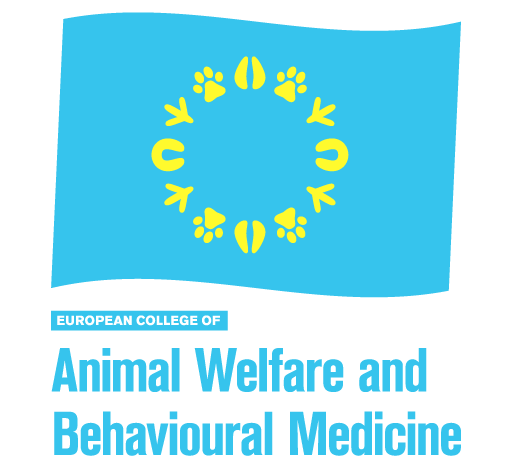AW Become a resident or a supervisor
Become a resident
Students can enrol in a residency programme of the ECAWBM (Animal welfare sub-speciality), if they have a degree in Veterinary Medicine and have been qualified for one year at least. Each program starts with a one-year intern or residency training in an environment where they will be exposed to common animal welfare issues that arise during clinical and husbandry procedures. After completing the one year internship the residency programme can be achieved by either of the following two routes:
- Standard Residency Programme: student enrols on a 3-year approved veterinary residency programme and an approved centre.
Approved centers:
IRSEA
Institut de Recherche en Sémiochimie et Ethologie Appliquée
Research Institute in Semiochemistry and Applied Ethologyhttps://www.group-irsea.com/
Apt, France
Contact : Alessandro Cozzi <a.cozzi@group-irsea.com>
- Alternative Residency Programme: This is a tailor-made individual programme including short training courses, periods of work experience and a relevant research project. An obvious type of person that would be eligible for this would be veterinary surgeons working on an animal welfare PhD programme. Student applies for approval of a three-year full-time (or equivalent part-time) individual training programme to the College. The residency must be completed in six years.
Both routes must be supervised by an existing Diplomate (Animal Welfare sub-speciality). Potential residents are encouraged to contact a Diplomate to discuss the options.
Download area
Become a supervisor
All residency programmes must be supervised and overseen by an existing Diplomate of the European College of Animal Welfare and Behavioural Medicine (WSEL).
Other suitably qualified professionals may be involved in specific aspects of training (e.g. research skills or welfare legislation). The Curriculum Vitae of these other professionals may be required to support applications from either the host institution for a standard programme or from the individual student in the case of the alternative residency route.
Requirements
Supervisor should guarantee that residents spend a period of at least 18 months under direct supervision, which for many disciplines requires the resident to be working alongside the supervisor in the same facilities. Supervision should ensure that the resident develops suitably diverse expertise in animal welfare science, ethics and law in a variety of species. It is recognised that this is likely to be difficult to achieve whilst based solely at one institution.
Suitable case discussions are essential to demonstrate a progression in knowledge and understanding during the residency with respect to all three elements of the discipline (welfare science, ethics and law). Active evidence of involvement of the supervisor within these case discussions must be demonstrated within the records of experience. In addition, it is anticipated that the period of welfare science will require significant supervisor input to review the proposed hypothesis, study design, data collection, data analysis, interpretation and report writing.
